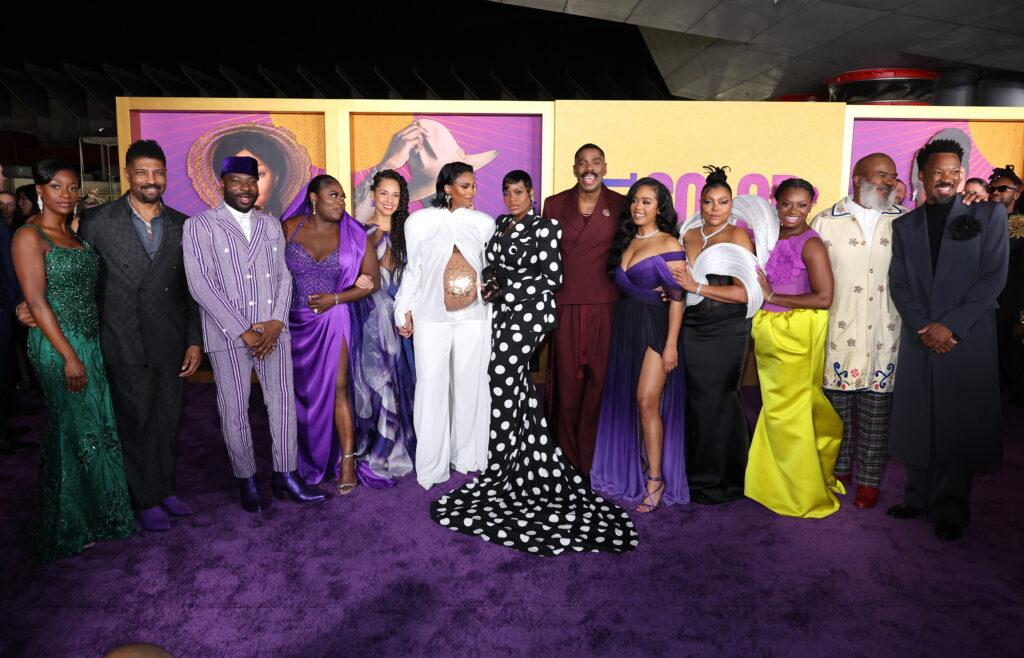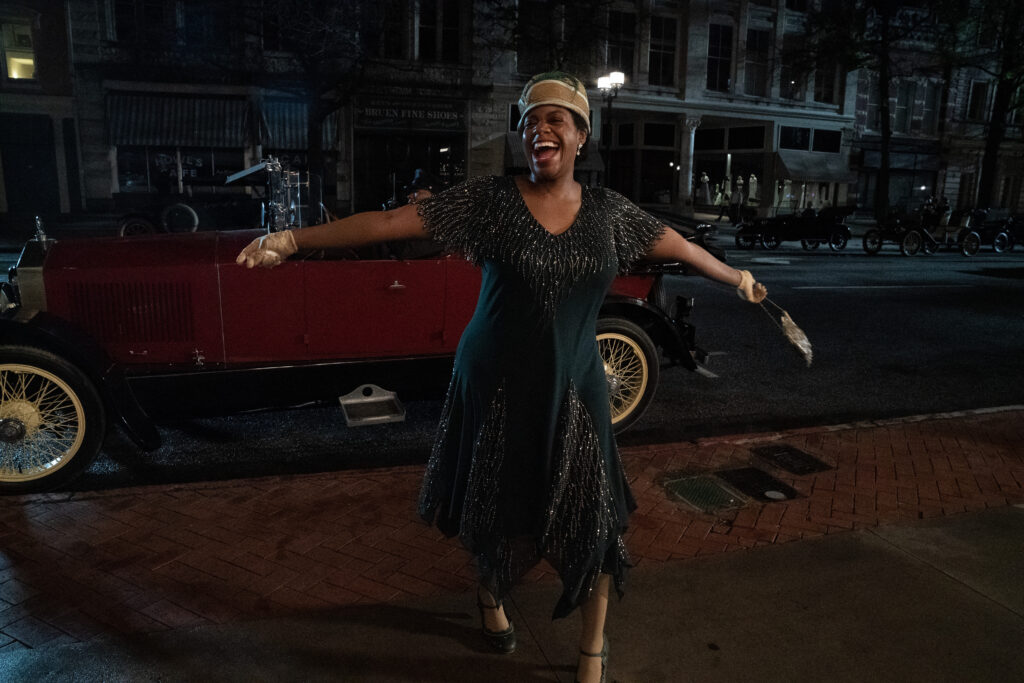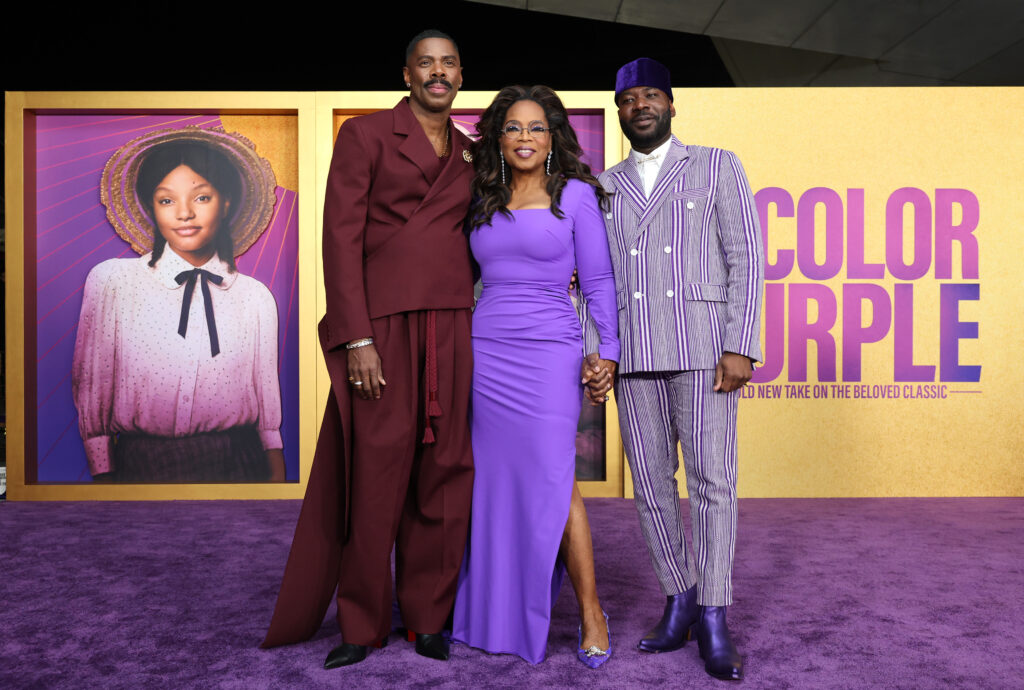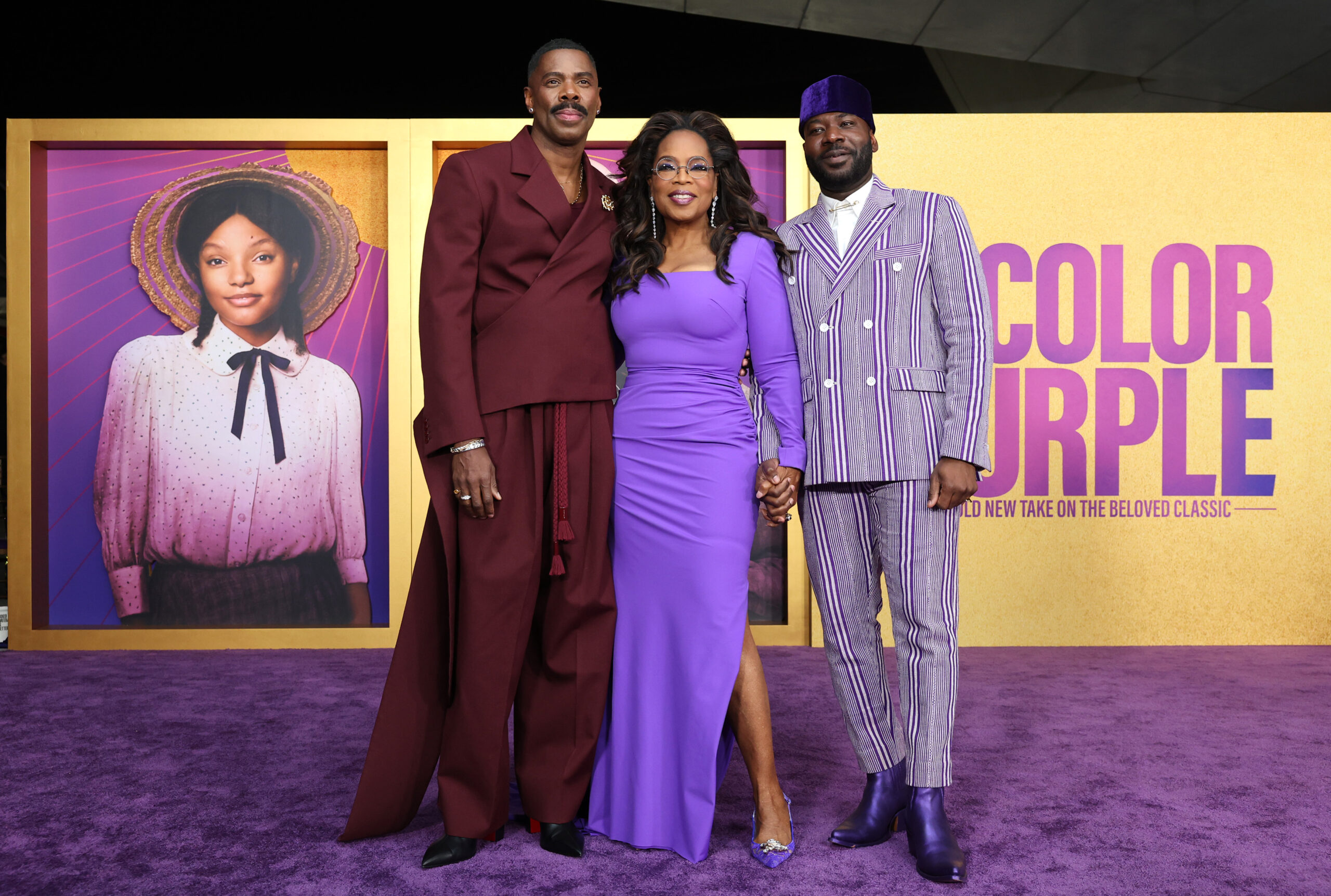“The Color Purple” has gotten praise and criticism for how it portrays Black women experiencing and surviving abuse that’s mostly inflicted by Black men. The filmmakers and stars of “The Color Purple” movie musical (released Dec. 25 by Warner Bros. Pictures) want audiences to know that their version of “The Color Purple” is meant to have more messages of healing and hope that overshadow the disturbing parts of the story.
In the United States, the movie launched to a spectacular start at the box office, making $18.15 million in ticket sales on opening day. The 2023 version of “The Color Purple” now has the second-biggest Christmas Day opening for a movie in the U.S., behind 2009’s “Sherlock Holmes,” which made $24.6 million for its Christmas Day opening.

Alice Walker’s Pulitzer Prize-winning 1982 novel “The Color Purple” was adapted into director Steven Spielberg’s Oscar-nominated 1985 movie of the same name, starring Whoopi Goldberg, Oprah Winfrey, Danny Glover, and Margaret Avery. Then came “The Color Purple” stage musical that had its original Tony-winning Broadway run from 2005 to 2008, which became a touring musical, and had a Tony-winning Broadway revival from 2015 to 2017. The 2023 movie musical version of “The Color Purple” (directed by Blitz Bazawule and written by Marcus Gardley) is based on the stage musical, which adopts a major change in the original story’s ending, especially for one of the main characters. Marsha Norman wrote the book for the stage musical, whose music and lyrics were written by Brenda Russell, Allee Willis, and Stephen Bray. “The Color Purple” musical movie uses most of the songs from the stage version.
“The Color Purple” musical movie (which takes place in Georgia and Tennessee, from 1909 to the 1940s) is a cinematic departure from the stage musical by having scenes that depict the imagination of central character Celie (played as an adult by Fantasia Barrino), as she escapes to a fantasy version of her life to cope with harsh realities. As an underage teenager, Celie (played by Phylicia Pearl Mpasi) was raped and impregnated by her father, Alfonso (played by Deon Cole), who sold the two infants who resulted from these rape pregnancies. By the age of 18, her father forced her into a marriage to an abusive, widower farmer named Albert “Mister” Johnson (played by Colman Domingo), who caused Celie to become separated from her beloved younger sister and best friend Nettie (played by Halle Bailey), after Nettie refused Mister’s sexual advances.
Other characters in the movie include Mister’s sensitive adult son Harpo (played by Corey Hawkins); strong-willed and feisty Sofia (played by Danielle Brooks), who becomes Harpo’s wife and has children with him; Squeak (played by H.E.R.), who becomes Harpo’s mistress; and seductive and sassy Shug Avery (played by Taraji P. Henson), who becomes sexually involved with Mister and Celie. In smaller roles are Reverend Avery (played by David Alan Grier), Shug’s disapproving father; Mama (played by Aunjanue Ellis-Taylor), the mother of Celie and Nettie; Grady (played by Jon Batiste), Shug’s easygoing musician husband; and Ol’ Mister (played by Louis Gossett Jr.), the domineering father of Mister. Celie is shy with very low self-esteem, but she starts to see herself differently when she gets to know Shug and Sofia, who both inspire her in different ways.
Many people involved in the movie musical version of “The Color Purple” have been involved in previous versions of the story. Oprah Winfrey, who made her Oscar-nominated film debut as Sofia in 1985’s “The Color Purple,” is one of the producers of the musical versions (on stage and on film).
Quincy Jones has been a producer for all the movie and stage versions of “The Color Purple.” Barrino played Celie on Broadway from 2006 to 2007. Brooks was nominated for a Tony Award for playing Sofia in the show’s Broadway revival. For her role in the movie, Brooks has received nominations at the Golden Globe Awards and Critics Choice Awards and is expected to get an Oscar nomination. Here is what Winfrey, Barrino, Brooks, Henson, and Bazawule said when they gathered for a virtual press conference to talk about “The Color Purple” movie musical:
Fantasia, you’ve said in many interviews that you initially said no to playing the role of Celie in this movie. Can you talk about why you changed your mind?
Barrino: When I walked away [from the Celie role in Broadway’s “The Color Purple”], I said I would never go back … just because of the weight, just because of the similarities of Celie and me.
When Scott [Sanders, a producer of “The Color Purple” musicals on stage and in film] asked me to play [Celie] again, I did say, “Scott, I think you’ve lost your mind. I’ll do it.” I spoke with my mother (who’s my best friend), my husband, and God.
And I said, “In this generation, in this time, I have to be the vessel again, to show all the young girls, women, who have been through the same things that I and Celie have been through.”

Blitz, can you talk about how you approached adapting this musical into a movie by staying true to the story while also creating your own unique vision?
Bazawule: For me, it was about understanding that “The Color Purple” is sacred text and understanding … it’s a deep source of healing for many. And it’s not work you take lightly.
And so, I was very clear that if you have nothing new to say, it’s probably better to walk away. Besides reading Marcus’ brilliant script, I went back to the oracle herself: Alice Walker and her text. And in that text, I found what I was looking for on the first page: “Dear God.”
And immediately, I knew that anybody writing letters to God about her condition has a sprawling imagination. And if we could just keep expanding and giving voice to that imagination, we will inevitably be contributing to this brilliant canon.
We also knew we’d be borrowing from this amazing multiverse of “The Color Purple.” As our world has evolved, there’s a new generation that’s sadly dealing with these heavy issues. We also have to figure out ways to present it to them, so that this generation can identify. … Having these brilliant women with me and having our amazing production team, with Oprah as a guiding light, it was always going to be how we were going to chart our course.
Danielle, the musical number for Sofia’s “Hell No” is a showstopper in the movie. What does the song mean for you in your own life?
Brooks: First, I have to acknowledge the incredible Miss Oprah for passing the baton to me [for the role of Sofia], and Blitz for also saying yes to me. I’ve been with this character since I did it on Broadway in the revival, so I’ve had some time to be with her.
During that year on Broadway, being Tony-nominated, and we had won a Grammy for [Best Musical Theater Album], and I was also doing “Orange Is the New Black” at the same time, I was starting to feel overwhelmed. I was starting to feel like, “Lord, why have you positioned me in this way? I don’t know if I’m ready for this. I don’t know if I’m really the chosen person for this moment.”
I was going through imposter syndrome. I was not really understanding why me. But me getting to sing “Hell No” every night was me getting to say “hell no” to my fears, was me saying “hell no” to resisting the greatness that God put inside of me. And so, living with that, eight shows a week, was really doing something inside of me. I really think it was preparing me for this moment that we’re having right now. Now, it’s really become an anthem.
This is about empowering so many women that feel like Sofia, that feel like Shug, that feel like Celie, and giving them the toolbox to say, “Hell no” in the same way that Sofia did for Celie. It’s also a reminder, in playing this character, that no matter how deep you fall in the things that you go through, at the end of the day, you can rise and get back up again. You can find your “Hell No.”

Taraji, can you talk about what you were able to bring to the character of Shug?
Henson: This moment is very rare … where we [as Black people] tell our own stories. I’ve been in some hits and things, but it was never us telling our story, our truth. We [“The Color Purple” team] showed up understanding the assignment. Shug was very challenging for me. I was very petrified with the singing. Here I come with my insecurities, and I was feeling out of sorts.
Barrino: But you killed it.
Brooks: You did.
Henson: But I’m going to say why. Sister circle is very important. And I love the messaging that we’re running with this story. … This world beats us and oppresses us and tells us we can’t and we’re ugly and our hair is this and that or says, “You’re too Black” or “You ain’t Black enough.”
And we had an opportunity to do what we love to do and for it to be nurtured in a way that we were free to create. I just wanted to do right. [She begins crying] …We have a chance to heal our community. Look what God has done. That’s how powerful art is. … This work that we do is so much bigger than us.
Oprah, what can you say about your long history with “The Color Purple”?
Winfrey: “The Color Purple” was such a life-changing, life-altering moment. It changed the trajectory of everything for me. Because after [getting the role of Sofia in the 1985 movie], I got “The Oprah Winfrey Show.” And I know this is a divinely touched, graced, inspired, embraced project.
During [the SAG-AFTRA strike of 2023], I was praying for this moment: To get to see this team, these beautiful women be able to be in the world and express what this film means to us.
“The Color Purple” moment happening now, just as the world is the way that it is, the healing and the joy that’s going to come from the screens … people will walk away feeling some uplift, feeling filled, feeling inspired, feeling hopeful, feeling a sense of forgiveness. I think it’s going to crack a lot of people open in places they didn’t even realize. It’s the ultimate in a full-circle moment. It’s the ultimate in what art can do when done well and inspired by a divine hand. And that divine hand has inspired everyone who is participating.








